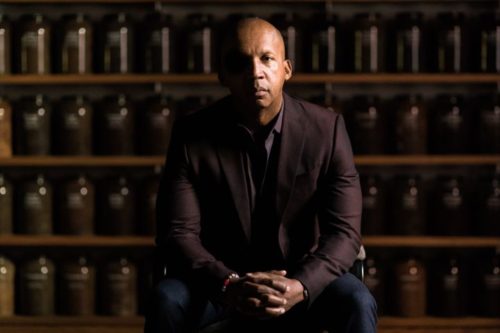Americans Won’t Be Free Until We Face Our Racist History
Share
Explore Our Galleries
Breaking News!
Today's news and culture by Black and other reporters in the Black and mainstream media.
Ways to Support ABHM?
Civil rights lawyer Bryan Stevenson wants Americans to look hard at the nation’s long, ongoing history of racism ― because, he says, without an honest acknowledgment of those wrongdoings, our past will be perpetuated in our present and we won’t be free to build a better future.

Bryan Stevenson sits in front of a wall of jars filled with soil collected from lynching sites across the country. Credit: Nick Frontiero, HBO
“True Justice: Bryan Stevenson’s Fight for Equality,” a new HBO documentary coming out June 26, digs into Stevenson’s work with the Montgomery, Alabama-based Equal Justice Initiative, fighting racism in the criminal justice system for over 30 years, largely by defending poor, black people on death row.
But the film goes beyond Stevenson’s own story ― much of which is told in his bestselling memoir “Just Mercy” ― and forces the viewer to confront the legacy of racial injustice in the U.S.: from Native genocide to slavery, to segregation and lynching, and up to racism in the criminal justice system today. The film argues that unless Americans look at these issues square in the eye ― and unless people in power, including law enforcement and politicians, acknowledge them publicly ― the harms of racism will endure….
Read full article here
More Breaking News here











Comments Are Welcome
Note: We moderate submissions in order to create a space for meaningful dialogue, a space where museum visitors – adults and youth –– can exchange informed, thoughtful, and relevant comments that add value to our exhibits.
Racial slurs, personal attacks, obscenity, profanity, and SHOUTING do not meet the above standard. Such comments are posted in the exhibit Hateful Speech. Commercial promotions, impersonations, and incoherent comments likewise fail to meet our goals, so will not be posted. Submissions longer than 120 words will be shortened.
See our full Comments Policy here.